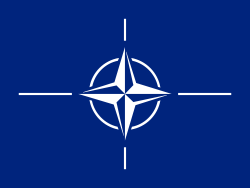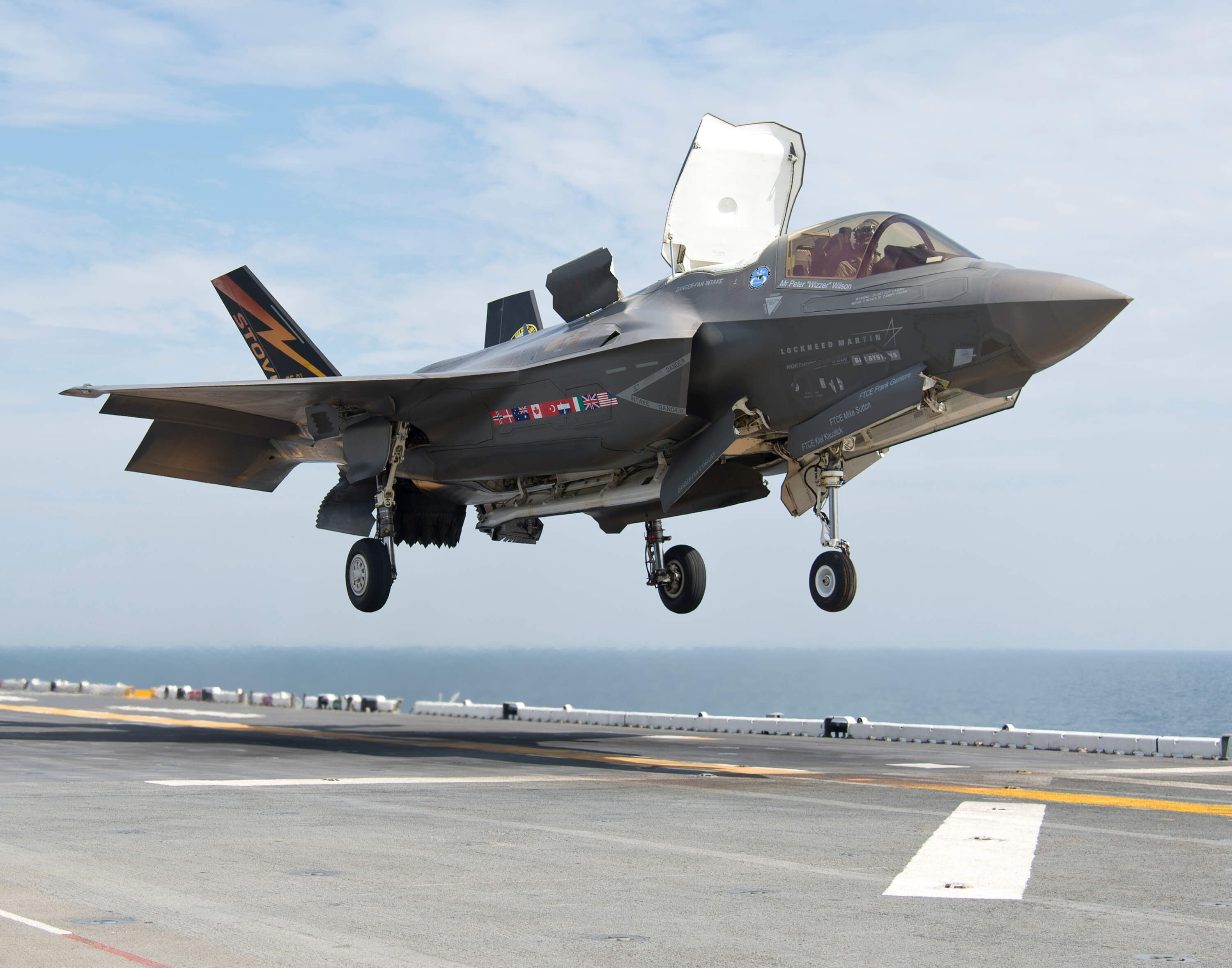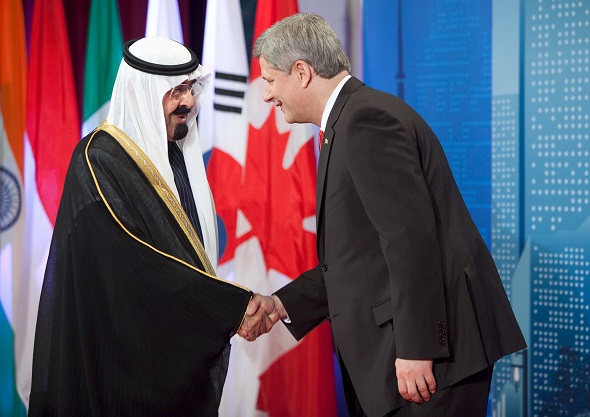[captionpix align=”left” theme=”elegant” width=”320″ imgsrc=” http://www.forces.gc.ca/site/_photos/500/IS2012-2004-01.jpg” captiontext=” Defence Minister Peter Mackay introduces Lieutenant-General Thomas Lawson, Canada’s new Chief of Defence Staff.”]
Lieutenant-General Thomas Lawson’s recent appointment as Canada’s Chief of Defence Staff (CDS) has generated a flurry of commentary on what the selection heralds regarding the government’s intentions on a range of issues. It has been suggested that, given General Lawson’s past advocacy, this signals continuing government support for the F-35 programme. Both David Bercuson and Philippe Lagassé, has raised the possibility that the selection was made in the hope of avoiding public controversies over the implementation of (some) recommendations of Lieutenant-General Andrew Leslie’s report on force transformation, many of which are unpopular within the CF.
Most significantly, it has been suggested that appointing Lawson, who lacks combat experience but served as Deputy Commander of NORAD, signals the Harper government’s intention to continue drawing-down its international defence commitments in order to focus on national and North American issues.
In truth, the General’s selection is only the latest instance in an emerging trend of reductions which have reversed a previous trend that emerged along with the US “War on Terror.” For Canada, the key part of that struggle was (and is) the mission in Afghanistan. For Canadian policy makers, the key part of that mission was alliance politics.
The available evidence indicates that for Canadian leaders, action in Afghanistan was directly and primarily related to Canada’s standing in Washington and in Brussels. The first (open) Canadian deployment, to Kandahar in 2002, was largely based on the need to show solidarity with the Americans post-9/11. The second, to Kabul in 2003, had similar drivers, but with the added carrot of avoiding involvement in the domestically unpopular war in Iraq.
Canada’s 2005 return to Kandahar was the result of both Prime Minister Martin’s desire to make a visible impact and the conviction among many Canadian officials that Kandahar was an ideal place to do so. In 2006, the Harper government chose, over American suggestions of an important training role, to extend the combat mission. Canada would not be seen to “cut and run.” The further extension of the Kandahar deployment and eventual transition to the current training mission resulted from similar considerations and pressure from Canada’s allies.
Actual improvement in Canada’s standing is difficult to measure, but some gains seem to have been made. Through its sizeable contribution, Canada gained considerable influence during the Kabul deployment. And although it seems that little was gained at the highest level in terms of influence in Washington, Canada seems to have had more than some larger allies whose troops were restricted by national “caveats.”
Canada also plays an important role in the NATO training mission in Afghanistan through the placement of Canadian officers in key command positions. Plus, the appointment of Canadian Lieutenant-General Charles Bouchard as commander of NATO forces during operations in Libya indicates that Canada gained at least some weight within the alliance.
Possibly most significant, Canada can certainly no longer be accused of being a “free-rider” on defence, lending legitimacy to Canadian concerns. In fact, to sustain the engagement in Afghanistan, the Martin and Harper governments increased defence spending from $13.9bn in 2004/2005 to $21.2bn in 2010/2011, rebuilding many CF capabilities.
However, each year considerable percentages of the funding increase were consumed by the mission in Afghanistan, with the end result being that, apart from a select few assets, much of Canada’s equipment is expected to wear out by 2017. To maintain current capabilities – and such diplomatic gains as they have helped Canada to make – similar levels of funding would have to continue for some time. Those policies, however, are slowly but surely being shifted.
For the first time since 2004/2005, the defence budget is being reduced by a projected 6.6% ($1.4bn), to 19.8bn – a reduction from 2010/2011 projections for this Fiscal Year. Among the cuts are equipment, international operation (which still constitute the lion’s share of the operations budget), and recruitment and training. Meanwhile, force readiness funding increased, a sign of commitment to maintaining current capabilities, though likely at the expense of future capabilities. As of 2010, Canada had moved up several places on the NATO scale of defence spending as a percentage of GDP, largely due to cuts by European NATO members, but remains firmly in the middle of the pack.
In policy terms, the key element of the shift is, of course, the end of Canada’s commitment in Afghanistan, solidified at the 2012 NATO summit in Chicago, when Prime Minister Harper rejected requests that Canada maintain a troop presence there.
[captionpix align=”left” theme=”elegant” width=”320″ imgsrc=” http://www.jfcnaples.nato.int/systems/image_thumbnail.ashx?file=/resources/24/Images/Bios/lieutenant_General_Charles.jpg&Size=320″ captiontext=” Canadian Forces Lieutenant-General Charles Bouchard, Commander of NATO’s Lybian engagement, Operation Unified Protector.”]
Also important is the Harper government’s focus on arctic sovereignty. The rhetoric is well known, but there is some substance too. For example, the Operation Nanook exercises held each year since 2007, and a recent (and public) boarding exercise performed by Canada’s elite special operations outfit, Joint Task Force-Two. Another example, so far un-realized, is the planned acquisition of Arctic Offshore Patrol Ships though the nascent national shipbuilding strategy.
In this context, and given his history, General Lawson’s appointment seems to indicate that Canada’s drawing-down from Afghanistan is part of a broader trend. Predictions of a renewed focus on domestic defence are reinforced by the General’s history of command experience with the US military and as Deputy Commander of NORAD.
With the mission in Afghanistan nearing its end, and efforts to rein in government spending continuing, it is not surprising – and may be prudent – that the Harper government is scaling-down its international commitments. Nevertheless, the potential consequences of that shift in terms of Canada’s hard-won gains have to be considered. Whether those gains were worth the sacrifices of the past decade can still be debated, but with the gains achieved regardless, the real question is whether the costs of maintaining them will be worth it.
The shift is not set in stone, and could still be reversed – policy is always subject to domestic and international developments. In particular, the degree to which Canada’s trend is mirrored by its allies will determine the costs of sustaining its position, and the likelihood that the trend continues. If Canada’s allies follow suit, consequences may be negligible. If not, Canada’s gains may be quickly lost. Developments are difficult to predict, and it might be that Canada can easily sustain its position in NATO for some time. But, as the saying goes, ‘there’s no time like the present’ to start thinking about what that position is worth to Canada.




